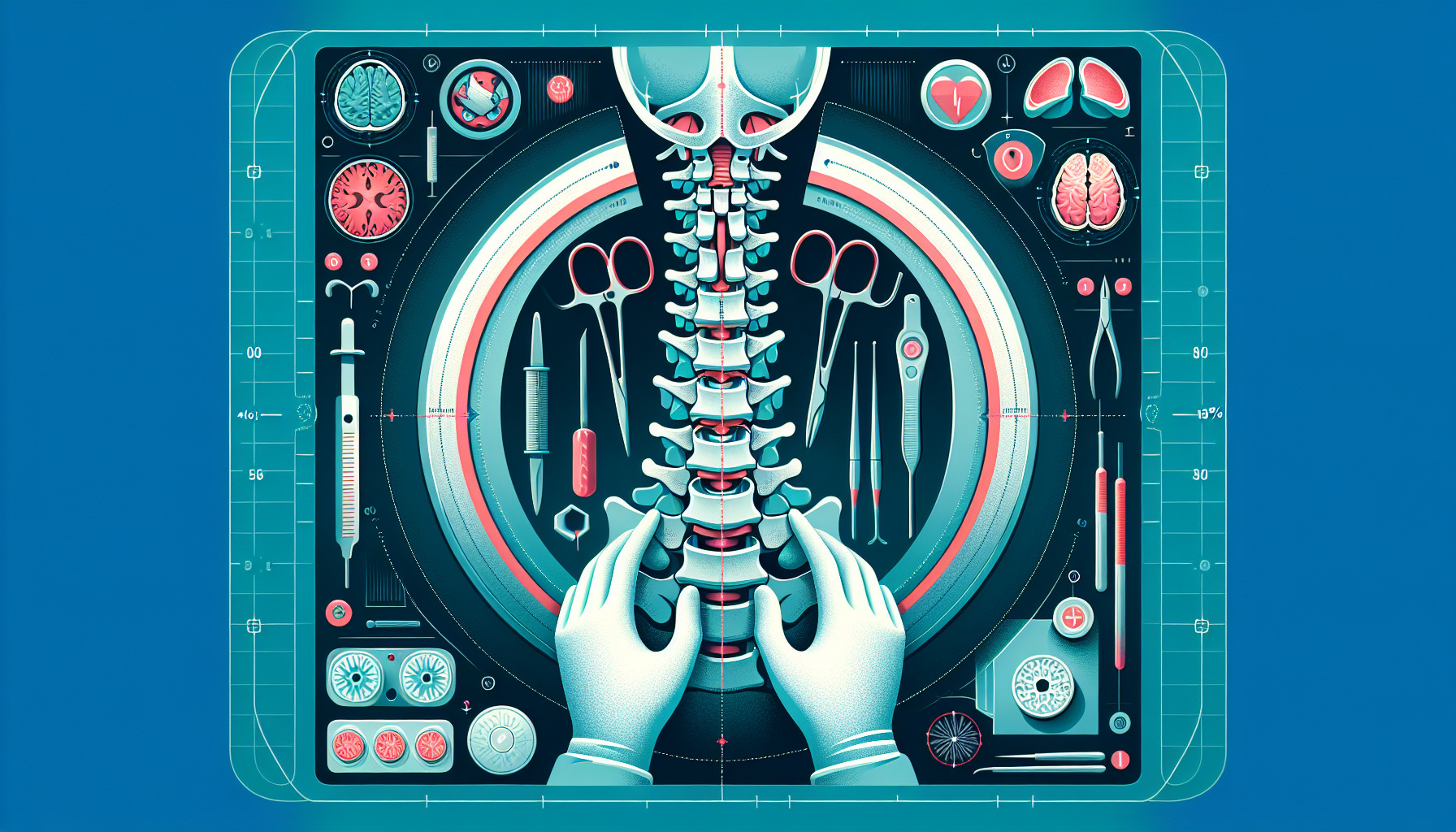Our Summary
This research paper discusses a method to predict the chances of wound infection in patients after they undergo spinal fusion and internal fixation, a type of spine surgery. The researchers used statistical methods to analyze clinical data from patients with spine disease to come up with individual treatment and recovery plans to minimize the risk of infection.
To predict the possibility of infection after the surgery, the researchers used a few techniques including Logistic regression and SMOTE algorithm. They analyzed data from 449 clinical cases and selected 14 variables such as gender, age, the number of segments fused during surgery, past medical history, and amounts of blood transfusion and bleeding during surgery.
The researchers classified the data into two categories: ‘postoperative infection’ and ‘postoperative non-infection’. They found that factors like age, the number of segments fused during surgery, the number of preoperative hospitalization days, cerebrospinal fluid leakage, and the preoperative ASA score (a measure of patient’s fitness before surgery) were significant in affecting the chances of postoperative infection.
FAQs
- What method does the research paper discuss to predict the chances of wound infection in patients after spinal fusion and internal fixation?
- What techniques did the researchers use to predict the possibility of infection after the surgery?
- Which factors were found to significantly affect the chances of postoperative infection in patients after undergoing spinal fusion?
Doctor’s Tip
Based on this research, a doctor may advise a patient undergoing spinal fusion to follow postoperative care instructions carefully, such as keeping the incision site clean and dry, taking prescribed antibiotics as directed, and attending follow-up appointments to monitor for any signs of infection. Additionally, the doctor may recommend maintaining a healthy lifestyle to improve overall health and immune function, which can help reduce the risk of postoperative complications.
Suitable For
Based on this research, patients who are at a higher risk of postoperative infection after spinal fusion surgery include older individuals, those undergoing fusion of multiple segments, those with a history of prolonged hospitalization, those experiencing cerebrospinal fluid leakage during surgery, and those with a higher preoperative ASA score indicating poorer health status.
Additionally, patients with certain underlying medical conditions such as diabetes, obesity, or compromised immune systems may also be at higher risk for postoperative infection and may be recommended spinal fusion surgery with caution.
Ultimately, the decision to recommend spinal fusion surgery to a patient will depend on their individual health status, the severity of their spine condition, and the potential risks and benefits of the procedure. It is important for healthcare providers to thoroughly assess each patient’s medical history and overall health before recommending spinal fusion surgery to minimize the risk of postoperative complications, including infection.
Timeline
Before the spinal fusion surgery:
- Patient undergoes various diagnostic tests and consultations with a spine specialist to determine the need for surgery.
- Patient may undergo physical therapy or other conservative treatments to manage symptoms prior to surgery.
- Patient is informed about the risks and benefits of spinal fusion surgery and prepares for the procedure.
- Surgery is scheduled and patient may need to undergo preoperative tests and evaluations.
- Patient is given instructions on preoperative care, such as fasting before surgery and medication management.
After the spinal fusion surgery:
- Patient is closely monitored in the recovery room immediately after surgery.
- Patient may experience pain and discomfort in the days following surgery and will be given pain medication as needed.
- Patient will need to follow postoperative care instructions, such as avoiding certain activities and taking prescribed medications.
- Patient will attend follow-up appointments with their surgeon to monitor healing and recovery progress.
- Patient will gradually resume normal activities and may undergo physical therapy to regain strength and mobility.
- Patient will be monitored for any signs of complications, such as infection or delayed healing, and appropriate treatment will be provided if necessary.
What to Ask Your Doctor
What are the potential risks and complications associated with spinal fusion surgery?
How long is the recovery process after spinal fusion surgery and what can I expect in terms of pain management and physical therapy?
How successful is spinal fusion surgery in alleviating my specific condition or symptoms?
What alternative treatment options are available for my condition and why is spinal fusion recommended in my case?
What is the expected outcome of the surgery in terms of pain relief and improvement in mobility?
How long will I need to stay in the hospital after the surgery and what is the typical postoperative care plan?
What restrictions or limitations will I have after the surgery in terms of physical activity and daily living?
Will I need any assistive devices or equipment after the surgery, such as a back brace or walker?
What is the likelihood of needing additional surgeries or procedures in the future following spinal fusion surgery?
Are there any lifestyle changes or precautions I should take to ensure the success of the surgery and minimize the risk of complications, such as infection?
Reference
Authors: Wang C, Miao C. Journal: Stud Health Technol Inform. 2023 Nov 23;308:662-668. doi: 10.3233/SHTI230898. PMID: 38007797
